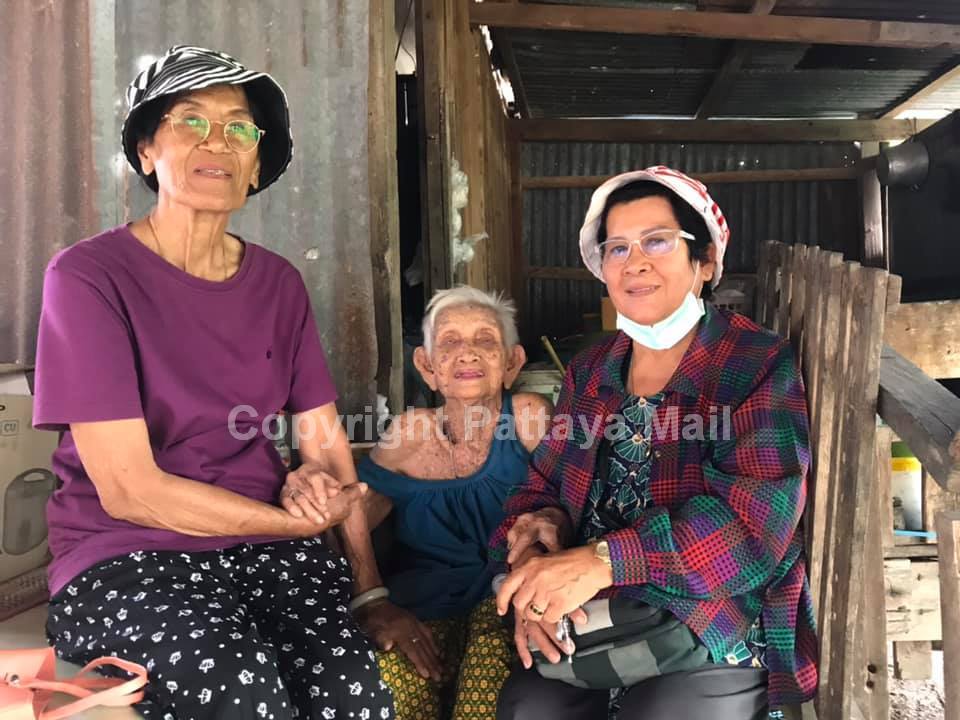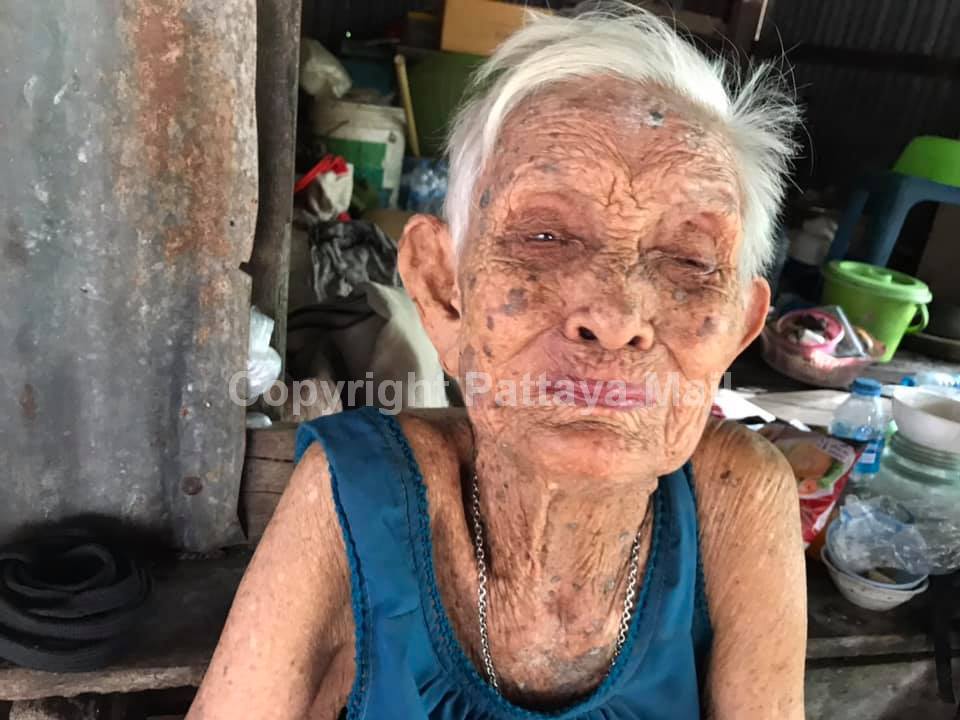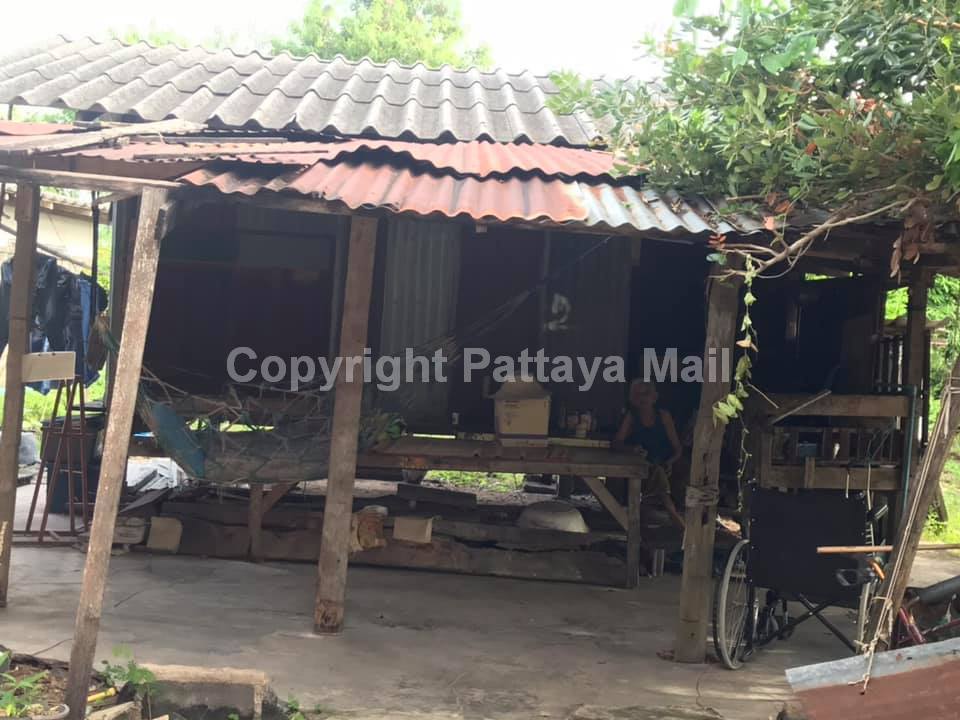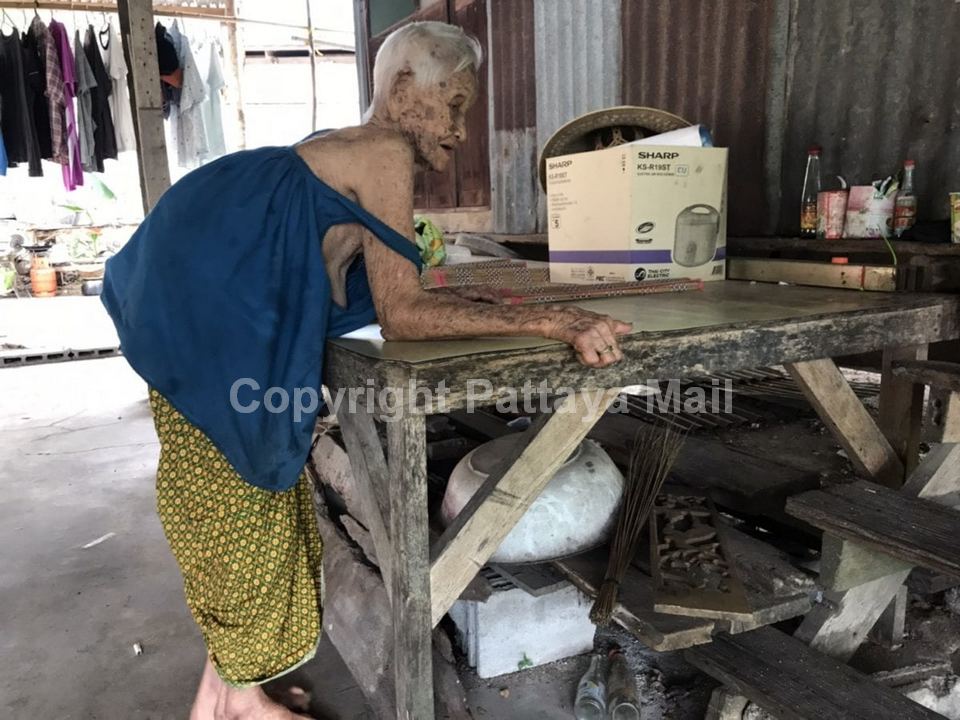
When Sopin Rodhom was born, Thailand was called Siam, the revolution that ended the absolute monarchy was still 12 years away and modern-day Pattaya wasn’t something anyone could ever have imagined.
Yet 100 years later, here Sopin is, living out her post-twilight years alone in a ramshackle open-air hut of wood and tin in Nong Plalai.
Looking back at a century of incomprehensible change, Sopin says she loved her life, but is not ready to leave this world just yet.
Born and raised in Chachoengsao in 1920, Sopin was 19 when Siam became Thailand, 21 when the country joined Japan in the Axis alliance, and 26 when HM King Rama IX took the throne. She has seen 13 military coups and has survived after her husband, brothers, sisters and all other relatives have passed.

She spent most of her life working a farm with her husband and selling hand-made brooms. When he died 20 years ago, she moved to Chonburi and, for the past decade, has lived in her little hut, which was given to her by a large property owner.
She still sells the occasional broom, but lives mostly on just the 1,000-baht stipend the government pays the elderly. About 200 baht of that goes toward utilities.
Sopin’s diet is simple. She lives on boiled vegetables, bananas, eggs and flaming-hot chili paste.
All her brothers and sisters are dead. Sopin never bore any children, although she did adopt one child who now has a family and lives nearby.
Sopin said she sees them sometimes. They want her to come live with them, but, after so long, she prefers living alone in the house where she’s comfortable. Even at 100, she’s still able to cook and bathe herself, although her mobility is extremely limited after breaking her hip a decade ago.

Yet other than that tumble, she has never been seriously ill. Her vision is still fine and her hearing good enough.
One regret, Sopin said, is that because she can’t really walk without holding on to a table or bed post, she can no longer go to the temple. She hasn’t gone to make merit for 20 years. Sopin said it makes her heart hurt.

So she stays home and listens to dharma sermons and prays. Maybe one day she’ll get a motorized wheelchair so she can go to the temple and enjoy group activities again before she dies, she said.
A version of this story originally appeared in the Bangkok Herald.




